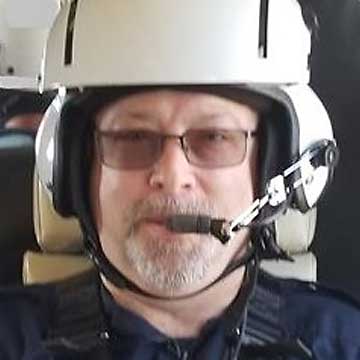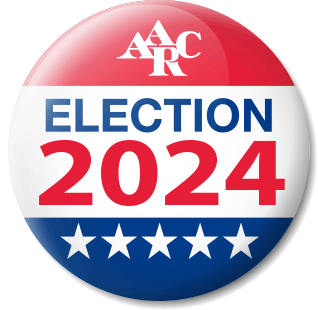Transport Chair
Nicholas Widder
RCP II Specialist
Children’s Hospital Los Angeles
Member Since: 1982
AARC Activities:
- Editor, Adult Acute Care Section Newsletter, 1996-1999
- Specialty Practitioner of the Year, Adult Acute Care Section, 1996
- Section Chair, Adult Acute Care, 1999-2005
- Acting Section Chair, Adult Acute Care, 2007
- Section Director, AARC Board of Directors, 2000-2005
- Acting Section Director AARC Board of Directors, 2007
- As a Section Director, I successfully passed a motion to ask the NBRC to develop the examination and the credential, which became the Adult Critical Care Specialist (ACCS).
- Over the next several years, I helped shepherd the process through the NBRC, which had been delayed when first, the AARC president forgot to forward our motion during the Triumvirate Meeting between the AARC, NBRC, and CoARC. Thereafter, the exam and certification process was delayed while the NBRC worked on the development of the Sleep Disorder Specialist (SDS) exam and credential.
Affiliate Activities:
- Membership Committee, California Society for Respiratory Care, South Coastal Section, 2018-2021
Related Organizations:
- Chair Elect, Respiratory Therapy Section, Society of Critical Care Medicine, 1998
- Board of Directors, Carolinas/Virginias Chapter, Society of Critical Care Medicine, 2004-2010
- Volunteer Paramedic, Princess Anne Rescue Squad, Virginia Beach EMS, 2014-2018
- Stop The Bleed Instructor, American College of Surgeons, 2019 through Present
Education:
- BSRC, Skyline College, San Bruno, CA, 2021
- RRT-ACCS, NBRC, 2017
- RRT-NPS, NBRC, 1991
Publications:
- Fundamental Critical Care Support Course 4th edition, Mechanical Ventilation Chapter, Contributor, 2007
- Pilbeam’s Mechanical Ventilation, 4th edition, High Frequency Oscillation Chapter, Contributor, 2006
- Sing, Ronald F; Widder, Nicholas A; McMullin, Jason; Coyle, Joseph P; Huynh, Toan T. UTILIZATION OF RESPIRATORY THERAPISTS FOR IN-HOSPITAL ENDOTRACHEAL INTUBATION. Critical Care Medicine 27(12):p A39, December 1999.
Elections Committee Questions:
What do you see as the biggest challenge facing the profession of respiratory care, and what do you recommend the ARC do to address it?
The Covid-19 pandemic changed staffing models, brought the concept of triage to the lay public, and brought the name of our profession to the attention of many who had never heard of our career path. The pandemic got the profession out of the shadows, yet, many medical professionals have a hard time defining what Respiratory Therapists (RTs) bring to the table.
The AARC MUST continue to bring to the forefront the importance of having the unique assessment skills and ability to intervene based upon those assessments that the RT brings to patient care, complementing the skills of the other members of the healthcare team treating the individual patient.
Now that Respiratory Therapists have been brought into the spotlight, we should never be allowed to fall into the shadows again.
Healthcare is changing more rapidly than ever. What ideas do you have to help today’s respiratory therapist meet these changes?
Evidence-Based Medicine (EBM) is neither a new idea nor is it universally accepted. For every RT who works in facilities where EBM is used as a rule, others are relegated to work in facilities who explain, “That is how we always do things, and we have never had a problem.”
This lack of an Evidence-Based format was most recently noticed during the “Tripledemic” of Covid-19, RSV, and influenza during the latter part of 2022 and early 2023. Adult hospitals and Emergency Departments were overrun with children suffering from bronchiolitis. The RTs were asked to perform breathing treatments that were futile or underdosed by well-meaning but uninformed providers. The Pediatric Section developed a presentation of Evidence-Based Practice geared to the adult RCPs to help guide the therapy given to a population they rarely serve.
The AARC should use this example as a template to educate RCPs and help guide them in finding champions to bring EBM to hospitals where it is lacking.
Role-Specific Questions:
If given the opportunity to represent your section, what would you do to increase section membership and promote engagement?
The Surface and Air Transport Section is a specialty section geared toward a niche in our profession, those of us who move critically ill and injured patients between two locations, often bringing tertiary care unavailable at the patient’s point of origin. The last in-person section meeting at the 2022 Congress included several new faces, students interested in joining our niche. Students and newly graduated RCPs are an untapped group, and we welcome them to join us in our small but valued community. While it takes years to hone the skillset necessary to work with the limited resources found on transport, the ability to help precept our next generation of transport therapists is gratifying.







